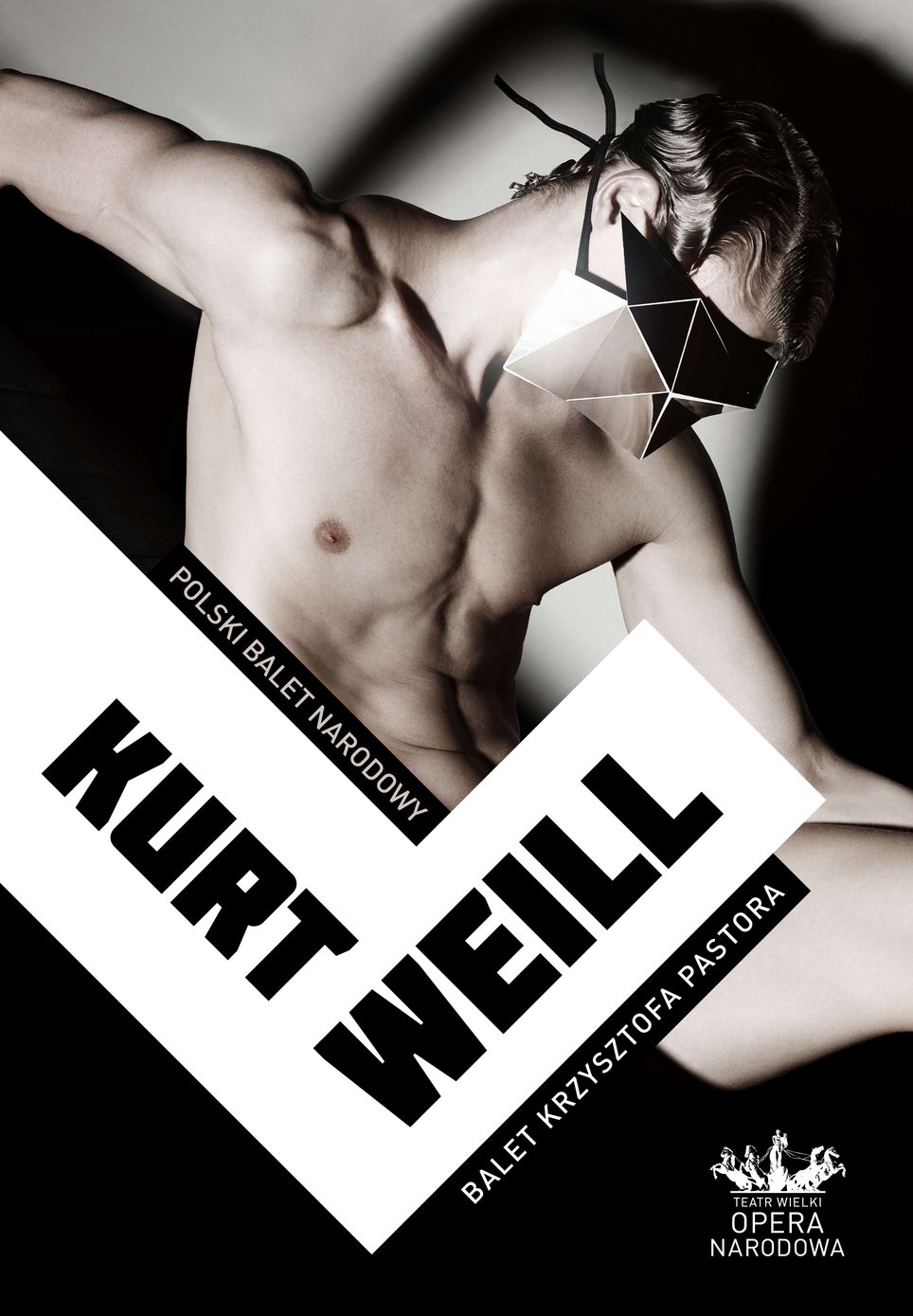
Ballet in two parts
Music: KURT WEILL
Libretto and music concept: KRZYSZTOF PASTOR
Production and choreography: KRZYSZTOF PASTOR
Conductor: PACIEN MAZZAGATTI
Visual concept: KRZYSZTOF PASTOR, BERT DALHUYSEN
Costumes: MACIEJ ZIEŃ
Chorus master: BOGDAN GOLA
Video projections and lighting: BERT DALHUYSEN
Polish premiere: 20 November 2009
Kurt Weill composed The Threepenny Opera and The Seven Deadly Sins. After Hitler's rise to power he emigrated to the United States. He composed symphony, film and theatre music, songs. He drew on jazz and cabaret, and was not averse to the foxtrot, shimmy, waltz and tango. Krzysztof Pastor came up with an unusual idea. With Het Nationale Ballet in Amsterdam, he produced a multimedia show in the form of a collage of dance images (2001). Taking the music of Kurt Weill, he created a vibrant ballet fresco, inspiring in its dance expressiveness, diversity of music forms and vocal hits, encouraging reflection on the social experience of the composer's times, the changeable fate of artists, symptoms of intolerance, and constant longing for love. British critic Maggie Foyer agreed this was 'a great work by Pastor, demonstrating choreographic and staging talent. The dance and music setting, she added, was extensive, stretching from a Berlin bar to Broadway; a gigantic project by the choreographer'. In the Netherlands this production was hailed as the event of the season and nominated for the prestigious Benois de la Danse Award. The premiere of Kurt Weill by the Polish National Ballet also aroused a lot of interest among audiences and Polish critics. The Warsaw production of Krzysztof Pastor's ballet includes a special attraction: a guest performance by the Dutch dance star Rubi Pronk. [pch]
In the ballet evening dedicated to Kurt Weill, among other things Krzysztof Pastor invokes the paintings of Georg Grosz. The composer's biography is also the history of an entire generation, or even the story of the fate of Europe, the history of emigrants. ... The whole is governed by the chronology of Weill's biography. Nevertheless, the performance is not a linear narrative. It is more of a colourful kaleidoscope of associations and impressions ... The Brecht-like reserve towards the plot is strengthened in Pastor's work by the commentaries to the songs, and especially their non-obvious interpretation, often based on a stylistic counterpoint. Like a lyrical provocation, the songs lend the show a quality of poetic indeterminacy, stimulating the imagination. ... The unknown soldier, the forgotten poet, the rejected painter, the unwanted composer, the lonely dancer - these are the anti-heroes called up in a personal message from a choreographer who, having travelled for many years, has paused among his own at the stop called Weill... [Aleksandra Rembowska, Teatr]
Running time: 2 hrs 20 min.




